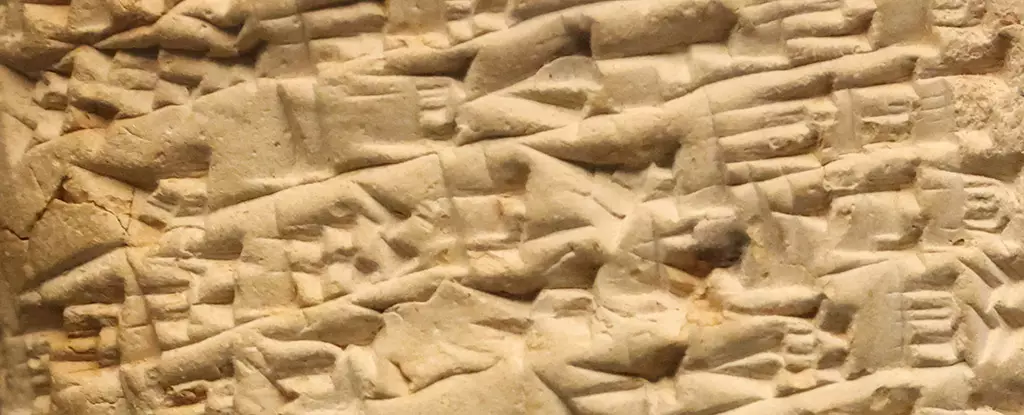Nearly 4,000 years ago, a Mesopotamian man named Nanni carved his frustrations into clay, marking a pivotal moment in the prehistoric narrative of consumer behavior. This fragment of history reveals a fascinating intersection between commerce and communication, resonating beyond its time and challenging our present-day consumer culture. Nanni’s bitter experience with a trader named Ea-nāṣir is more than just a minor annoyance; it serves as an electric reminder of how accountability in business has always been paramount. However, it also uncovers a deeply human desire for fairness—one that resonates through today’s loveless customer service exchanges.
Ancient complaints may lack the polish of today’s online reviews, but they blossom with the same honesty that consumers demonstrate today. The complaint tablet is a testament to the timeless struggle of the ordinary individual against the indifference of commerce, highlighting an age-old narrative that we have yet to completely solve.
The Complexity of Business Communication
Nanni’s grievance underscores the challenges of communication in an era devoid of modern conveniences like telephones or the internet. The absence of a customer service hotline forced him to rely on messengers, physically conveying his discontent to the unyielding trader, Ea-nāṣir. The frustration is palpable in Nanni’s words, as he laments the disregard shown to his messengers while alluding to the privileges of those who uphold better standards of service.
In today’s fast-paced electronic economy, we still find ourselves battling with inefficiencies in customer interactions, albeit through different mediums. The complexity of human emotions meets the cold systems of commerce; Nanni’s experience foreshadows the alienation modern customers often feel when faced with bureaucratic indifference. Our inability to ensure accountability within business transactions remains a pertinently relevant issue, as we are often seen as mere case numbers rather than valued patrons.
A Merchant’s Grievous Oversight
Ea-nāṣir, perhaps a crooked merchant beset by dwindling resources, stands as both a symbol and a source of frustration for modern consumers. The tablet indicates that his reputation for disregard was far from isolated; Nanni was not alone in his dissatisfaction. Despite this, the trader was meticulous in his own records, contravening the expectations of ethical engagement. Nanni’s accusations suggest something more troubling: a systemic flaw in the socio-economic fabric of his time.
The narrative echoes harshly today, where companies built on a service-oriented ethos sometimes fail spectacularly. It begs the question: Have we learned from the grievances of our forebearers? In an age of corporate greed and prioritization of profit over people, one can’t help but feel that the dialogues around fairness and accountability in commerce are still evolving—albeit at a snail’s pace.
Legacy: Beyond the Tablet
The experience of Nanni extends beyond mere historical curiosity; it crystallizes a universal struggle between consumers and merchants that has persisted, unabated, through the ages. Nanni’s forceful declaration that he would select copper of finer quality himself resonates today—modern consumers are empowered by technology, rising through collective voices and shared platforms to demand better services and products.
While progress has been made, how often do we still leave the transaction unsatisfied or isolated in our complaints? Nanni’s final plea for restitution mirrors the clamor for more engaged and humane customer interactions that we often hear in today’s marketplace.
The irony lingers in the resolve of a frustrated man from the Bronze Age. As we navigate our own consumer landscapes, the desire for fairness remains fundamentally unchanged. Perhaps we should pay heed to such tales of old; they might offer more than an amusing anecdote. They reflect a human condition—a relentless quest for accountability that, if not addressed, will continue to echo through the annals of history, from clay tablets to digital screens.


Leave a Reply